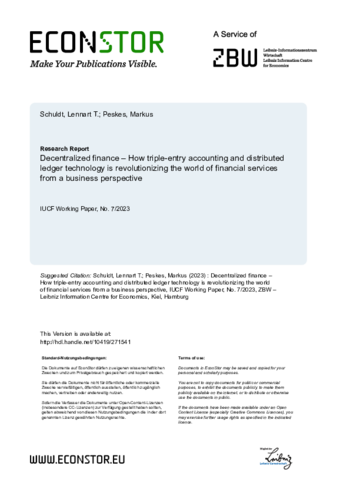Follow this link to the publication
Decentralized finance (DeFi) is a rapidly growing science that leverages distributed
ledger technology (DLT) to offer peer-to-peer financial services. The DeFi ecosystem
consists of decentralized applications that range from traditional financial services like
decentralized stock exchanges (DEX) and lending platforms to novel services like flash
loans.
By eliminating the need for intermediaries and leveraging the public design of DLT
networks, DeFi offers a more efficient, transparent, and accessible financial system. This
results in lower transaction costs, higher control for users, and increased accessibility.
The interoperable nature of DeFi applications enables the creation of new applications
and financial services through the use of existing applications, which leads to a high
degree of comparability and flexibility, allowing network participants to efficiently execute
services. However, there are also barriers to the wider adoption of DeFi, such as the
unsettled regulation in many countries, and the current user experience, which requires
technical expertise and is less user-friendly than traditional centralized financial services.
The strong adoption of DeFi by individuals and surveys indicating growing interest in
DeFi by businesses will likely lead to these barriers being overcome as the user base
grows.
Despite the volatility of the crypto market, the trend of increasing adoption of DeFi
applications is evident and reflected in an increasing number of users, projects, market
capitalization of projects, and total value locked. Thus, DeFi is creating a decentralized
financial system in parallel with the traditional centralized system, depriving it of a
growing amount of resources.

